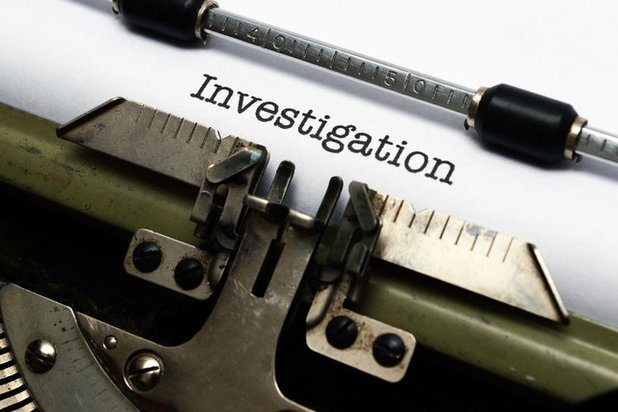Podcast: Play in new window | Download
Is every case worked by an insurance investigator as a result of the claim being fraudulent? Does an investigation insinuate there is insurance fraud happening? Some people, investigators included, believe it automatically means insurance fraud is taking place. But the truth is that much of the work I do in the insurance investigation field doesn’t relate to fraud at all.
Insurance Fraud or Investigator Bias?
We are all Human
I understand we are all human. But I believe that all investigators need to work on files in a non-bias matter. They need to work on all assignments with an open mind. Whether it be when conducting surveillance, investigating accidents, investigating home thefts, investigating vehicle thefts, slip, and fall accidents, workers’ compensation claims, disability claims, or any file worked. Like many other occupations, we need to be held to a certain standard, a higher standard. And the higher standard I will be focusing on is investigating with no bias towards a file that is being worked.
Two Types of Investigators (Generally Speaking Of Course)
I have had conversations with numerous investigators over the years regarding the files they have worked in the past. Some investigators are very detached from the work. Being detached doesn’t mean they don’t care about doing a good job on the assignment, they just don’t take things personally. They don’t care if someone is fraudulent or not. They don’t go into each investigation believing that the person is guilty of insurance fraud just because an insurance company has asked them to investigate more about an insurance claim. This type of investigator understands that insurance companies don’t always hire private investigators because they think a claim is fraudulent.

Then there is the other type of investigator. This investigator believes that every claim being worked by them is either fraudulent or likely fraudulent. They say, “Why else would an insurance company hire them?” And this type of thinking can be related to surveillance assignments or claims investigation work.
I personally know someone in the insurance investigation industry that believes every claim (or almost every claim) is fraudulent. Whether it be someone they are conducting surveillance on or any other claim they are investigating. They personally believe that there is some sort of insurance fraud involved unless proven different. Almost every conversation with this investigator regarding the files they were working on implied there was something fraudulent taking place.
When this investigator talked about a surveillance assignment, the investigator would describe every movement as if that movement made the claim fraudulent.
So I asked this investigator how many cases they worked on where they believed fraud was involved. This investigator told me they believed most of the files they worked on were fraudulent. After all, that is why the insurance company has investigators working files (this is what they believed).
I Was Furious
I think I about lost my crap when I heard that. Why did it bother me so much? First, because this investigator was completely wrong. Secondly, that mentality creates a bias in the investigation. This misled bias starts off the investigation on the wrong foot with the investigator believing that a claim is not legit. And this type of mentality has the potential to influence how claimants are treated and even how the final report is written. It’s that bias that can lead an investigator down a path that isn’t looking for the truth but rather anything that can point to deception or insurance fraud. This type of investigation is not good for the claim, the claimant, and the client.
Here’s the thing. When it comes to insurance companies assigning surveillance to an investigator they are trying to determine whether a claim is legit or not (in the overwhelming majority of instances). And generally speaking, insurance companies typically see potential red flags that trigger them to even assign surveillance.
And just because the person the investigator is conducting surveillance on is active doesn’t mean they are doing anything wrong.
The investigator is not a doctor. An investigator doesn’t know a claimant’s/insured’s medical history. An investigator doesn’t know what the person is allowed to do physically or not allowed to do (in many cases). The investigator is responsible for is documenting as much as they can of the individual they are watching. After documenting the activity the investigator submits the documentation to the insurance company.
When it comes to investigating claims there isn’t always some obvious thing in the claim that makes the insurance company think something fraudulent is going on. Sometimes insurance companies just need more detailed information about the claim because it is complex or there is just too much information to gather and they need help. Sometimes the information they have about a claim has been misunderstood and is cleared up after being interviewed by an investigator. Investigators collect information and provide it to a client so they can make an informed decision about a claim. It’s that simple.
Our goal as insurance investigators is to be an unbiased party collecting information so that when we conduct surveillance, the report is written in an observant manner only. It is not to contain your opinions (in most cases) and it is not meant to have what you observed to be slanted to make the actions of a claimant or insured appear worse than they really are. When we interview witnesses, claimants, and insured parties we are interviewing, information collecting, investigating, and being respectful.
Just do the work and keep your feelings and bias out of the work product. End Rant.
Andrew
Recent Posts
Hawaii is probably one of the most interesting states to work as a private investigator if you are not used to the culture or a native of the state. And if you are not a local, that is something...
How to become a private investigator in Georgia
